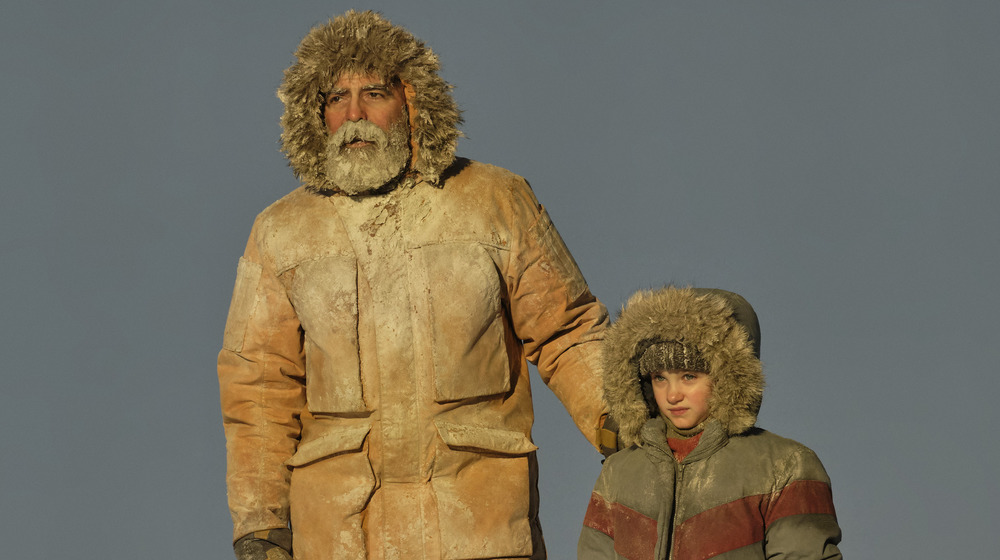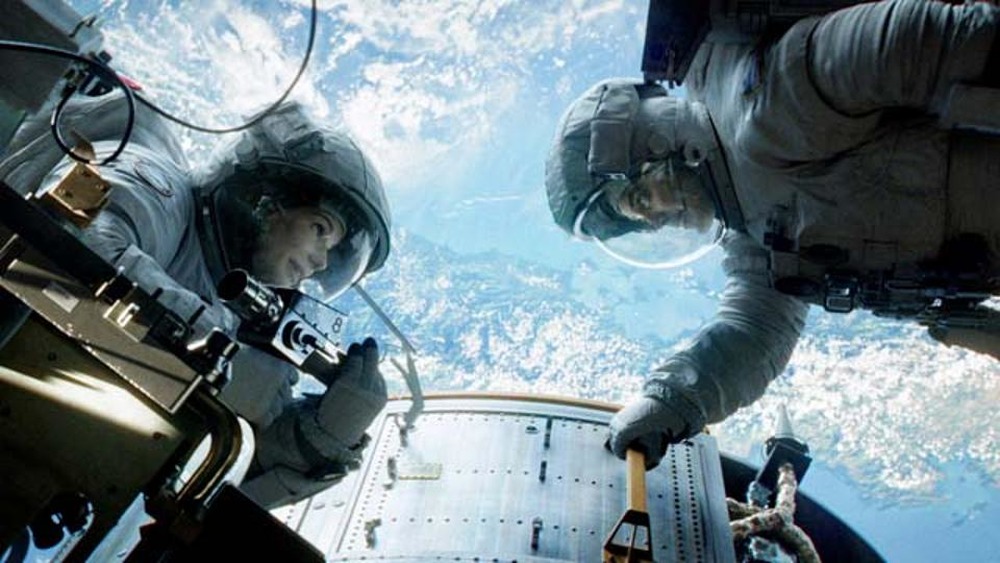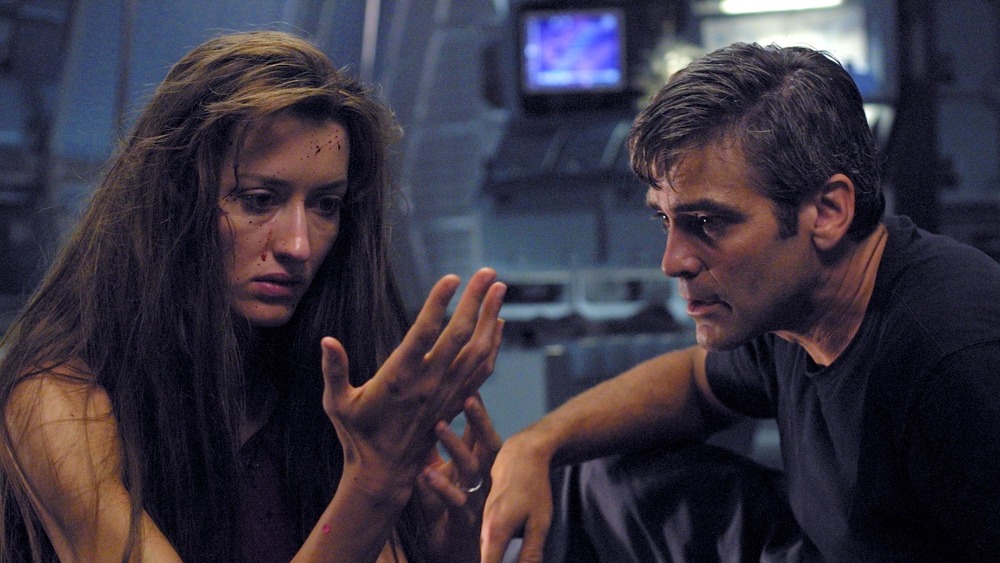The Movies Fans Of Netflix's The Midnight Sky Have To Watch Next
The Midnight Sky – which is now streaming on Netflix — is a post-apocalyptic but optimistic sci-fi adventure from director, producer, and star George Clooney. It's the first sci-fi movie Clooney has directed, but it's his third space movie overall. He acted in Steven Soderbergh's 2002 space station-set drama Solaris, as well as Alfonso Cuarón's 2013 astronauts-in-peril thriller Gravity. If you've looked to The Midnight Sky and liked what you saw, you should watch those two movies next. Clooney learned things from working on both of those films that he drew on while making The Midnight Sky, as he said in an interview with his friend, actress Cate Blanchett.
According to Syfy Wire, Clooney said elements of both of those films influenced The Midnight Sky, particularly the realistic depiction of outer space in Gravity and the "dreamlike feel" of Solaris.
In The Midnight Sky, Clooney — starring in a movie for the first time since 2016 — plays Augustine Lofthouse, a scientist who has devoted his life to trying to find new planets that could be habitable for humans. After an extinction-level event wipes out most of the world's population, the already terminally ill Lofthouse stays behind at his remote Arctic research base to try to contact the crew of the nearest spaceship, the Æther, and tell them what happened, accompanied only by a little girl named Iris (Caoilinn Springall), who was left behind. Meanwhile, the crew of the Æther are having their own complications, with an astronaut who goes by "Sully" (Felicity Jones) pregnant many millions of miles away from home, and pilot Mitchell (Kyle Chandler) desperate to get home to his wife. The film is strongly influenced by Gravity and Solaris, in ways we're about to explore.
Gravity influenced how space is depicted in The Midnight Sky
Gravity, in which Clooney played self-sacrificing spaceship commander Matt Kowalski, was particularly acclaimed for its spacewalk scenes, which really felt like they were filmed in space. Clooney drew on the work of Alfonso Cuarón and cinematographer Emmanuel Lubezki — both of whom won Oscars for their innovative work on Gravity – for the cinematography of The Midnight Sky's own space scenes.
"Alfonso, arguably, did the best physical version [of space] with Gravity because there is no north or south in space," Clooney said. "You're constantly moving, so the idea was to keep the camera rotating, like he did, but not so much that you make people throw up. It is a trick. And Martin (Ruhe), our cinematographer, had a beautiful plan and worked on it for a long time."
The Midnight Sky's most notable outer space sequence finds Sully, Commander Gordon Adewole (David Oyelowo), and engineer Maya (Tiffany Boone) doing a spacewalk to fix damage their ship sustained during a meteor shower. The way the camera floats like it's unencumbered by gravity is reminiscent of Gravity's harrowing outer space scenes in which Kowalski and Ryan Stone (Sandra Bullock) try to make it from floating in the emptiness of space back to the relative safety of a spacecraft.
Solaris influenced the psychology of The Midnight Sky
Another film that Clooney acted in that informed The Midnight Sky is Solaris, Stephen Soderbergh's adaptation of Stanislaw Lem's 1961 novel of the same name. Augustine Lofthouse and Solaris' Dr. Chris Kelvin are similar characters. They're both lonely men of science, reflecting on the choices they've made while trying to do something to grant their lives meaning.
In Solaris, Kelvin is a clinical psychologist who is sent to investigate bizarre occurrences among the crew of a space station orbiting the planet Solaris. He learns that the planet is sending replicas of the crew's loved ones to the ship when he is visited by a clone-like reproduction of his wife Rheya, who died tragically years prior, and whose death has always haunted Kelvin. Kelvin is caught between reliving the past to try to find a different outcome, and doing the important things he needs to do in the present. It's a philosophical psychodrama about how "there are no answers, only choices."
The Midnight Sky takes many psychological cues from Solaris. It would spoil the ending to give too much away, but both films have flashbacks to memories, visions of loved ones, and warnings about trying to cling to the past.
Soderbergh's Solaris is a remake of Soviet filmmaker Andrei Tarkovsky's philosophically rich 1972 film, which is considered one of the greatest science fiction films of all time. We'd recommend that one over the Clooney version for its artistic value, but the American Solaris is a little more accessible.


